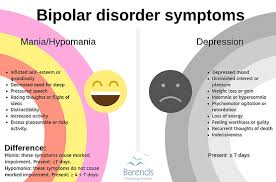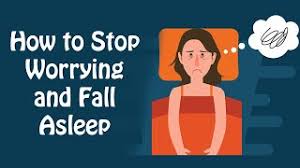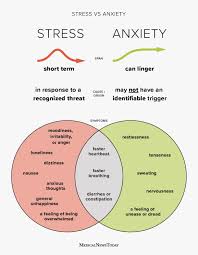Treating Insomnia in Bipolar Disorder
Insomnia is a common symptom of bipolar disorder, affecting a significant number of individuals with this mental health condition. Sleep disturbances can exacerbate mood swings, disrupt daily functioning, and contribute to overall instability. Therefore, addressing insomnia is crucial in managing bipolar disorder effectively.
Understanding the Relationship Between Insomnia and Bipolar Disorder
Individuals with bipolar disorder often experience disruptions in their sleep patterns, including difficulty falling asleep, staying asleep, or waking up too early. These sleep disturbances can occur during both depressive and manic episodes. The relationship between insomnia and bipolar disorder is complex and bidirectional.
Treatment Approaches for Insomnia in Bipolar Disorder
When treating insomnia in individuals with bipolar disorder, it is essential to consider the unique challenges posed by the co-occurrence of these conditions. Some effective treatment approaches include:
- Sleep Hygiene Practices: Establishing a consistent sleep schedule, creating a relaxing bedtime routine, and optimizing the sleep environment can help improve sleep quality.
- Cognitive Behavioral Therapy for Insomnia (CBT-I): CBT-I is a structured therapeutic approach that targets maladaptive thoughts and behaviors related to sleep. It has been shown to be effective in treating insomnia in individuals with bipolar disorder.
- Medication Management: In some cases, healthcare providers may prescribe medications to help regulate sleep patterns. It is essential to work closely with a healthcare provider to determine the most appropriate medication options.
- Mood Stabilization: Effectively managing mood symptoms through medication and therapy can also have a positive impact on sleep quality in individuals with bipolar disorder.
- Complementary Therapies: Practices such as mindfulness meditation, relaxation techniques, and yoga can complement traditional treatment approaches and promote better sleep hygiene.
Seeking Professional Help
If you or someone you know is struggling with insomnia as a result of bipolar disorder, it is important to seek professional help. A mental health provider can assess your symptoms, develop an individualized treatment plan, and provide ongoing support as you work towards better sleep quality and overall well-being.
By addressing insomnia effectively within the context of bipolar disorder management, individuals can experience improved mood stability, enhanced daily functioning, and better overall quality of life.
9 Benefits of Treating Insomnia for Enhanced Bipolar Disorder Management
- Improved mood stability
- Enhanced cognitive function
- Better overall quality of life
- Reduced risk of mood episodes
- Enhanced daily functioning
- Improved ability to manage stress
- Enhanced emotional regulation
- Improved concentration and focus
- Better management of bipolar symptoms
Challenges in Treating Insomnia for Individuals with Bipolar Disorder: Interaction, Complexity, Exacerbation, and Limited Efficacy
- Potential for medication interactions
- Complex treatment considerations
- Risk of symptom exacerbation
- Limited effectiveness of traditional interventions
Improved mood stability
Treating insomnia in individuals with bipolar disorder can lead to improved mood stability, a crucial benefit that positively impacts overall mental health. By addressing sleep disturbances and promoting better quality rest, individuals may experience fewer mood swings, reduced severity of depressive and manic episodes, and enhanced emotional regulation. Improved mood stability not only contributes to a better sense of well-being but also supports better decision-making, relationships, and overall quality of life for individuals managing bipolar disorder.
Enhanced cognitive function
Treating insomnia in individuals with bipolar disorder can lead to enhanced cognitive function as a significant benefit. Adequate and quality sleep plays a crucial role in cognitive processes such as memory consolidation, problem-solving abilities, attention span, and overall mental clarity. By addressing sleep disturbances effectively through various treatment approaches, individuals with bipolar disorder may experience improved cognitive function, enabling them to think more clearly, focus better, and perform tasks more effectively in their daily lives.
Better overall quality of life
Addressing insomnia in individuals with bipolar disorder can lead to a significant pro: a better overall quality of life. By improving sleep patterns and promoting restful sleep, individuals with bipolar disorder can experience enhanced mood stability, increased energy levels, improved cognitive function, and better overall well-being. Quality sleep is essential for mental and physical health, and its positive impact on mood regulation and daily functioning can contribute to a more fulfilling and satisfying life for those managing bipolar disorder.
Reduced risk of mood episodes
One significant benefit of effectively treating insomnia in individuals with bipolar disorder is the reduced risk of mood episodes. By addressing sleep disturbances and improving sleep quality, individuals may experience greater mood stability and a decreased likelihood of experiencing manic or depressive episodes. Adequate sleep plays a crucial role in regulating emotions and maintaining mental well-being, making it an essential component of managing bipolar disorder effectively. By prioritizing treatment for insomnia, individuals with bipolar disorder can potentially reduce the frequency and severity of mood swings, leading to a more balanced and stable emotional state.
Enhanced daily functioning
Treating insomnia in individuals with bipolar disorder can lead to enhanced daily functioning. By improving sleep quality and quantity, individuals may experience increased energy levels, improved concentration, and better cognitive function throughout the day. Adequate restorative sleep can help regulate mood swings, reduce irritability, and enhance overall productivity in various aspects of life, such as work, relationships, and daily activities. Addressing insomnia as part of bipolar disorder management can significantly contribute to better daily functioning and a higher quality of life.
Improved ability to manage stress
Treating insomnia in individuals with bipolar disorder can lead to an improved ability to manage stress. Adequate and restful sleep plays a crucial role in regulating emotions and enhancing resilience to stressors. By addressing insomnia effectively, individuals with bipolar disorder can experience better emotional regulation, reduced reactivity to stressful situations, and an overall increased capacity to cope with daily stressors. Improved sleep quality can help create a solid foundation for mental well-being, allowing individuals to navigate challenges more effectively and maintain stability in their mood and overall mental health.
Enhanced emotional regulation
Treating insomnia in individuals with bipolar disorder can lead to enhanced emotional regulation. Sleep plays a crucial role in regulating emotions, and disruptions in sleep patterns can exacerbate mood swings and emotional instability commonly experienced in bipolar disorder. By improving sleep quality and quantity through effective insomnia treatment, individuals may experience better emotional control, reduced reactivity to stressors, and enhanced ability to manage their mood fluctuations. This pro of treating insomnia not only contributes to overall well-being but also supports more stable mental health outcomes for individuals living with bipolar disorder.
Improved concentration and focus
Treating insomnia in individuals with bipolar disorder can lead to a significant pro: improved concentration and focus. By addressing sleep disturbances and promoting better sleep quality, individuals may experience enhanced cognitive function, increased alertness, and better ability to concentrate on tasks. Improved concentration and focus can have a positive impact on daily productivity, performance at work or school, and overall quality of life. Managing insomnia effectively as part of bipolar disorder treatment can help individuals regain mental clarity and optimize their cognitive abilities for better functioning in various aspects of their lives.
Better management of bipolar symptoms
By effectively treating insomnia in individuals with bipolar disorder, a significant pro is the better management of bipolar symptoms. Addressing sleep disturbances can lead to improved mood stability, reduced severity of mood swings, and enhanced overall symptom management. Quality sleep plays a crucial role in regulating emotions and cognitive function, making it a key factor in maintaining stability in individuals with bipolar disorder. By prioritizing the treatment of insomnia, individuals can experience greater control over their bipolar symptoms and enjoy a higher quality of life.
Potential for medication interactions
One significant con of treating insomnia in individuals with bipolar disorder is the potential for medication interactions. Introducing medications to address sleep disturbances in individuals already taking mood-stabilizing drugs can create a risk of adverse effects due to drug interactions. The complexity of balancing the effects of various medications to manage both insomnia and bipolar symptoms requires careful monitoring and coordination by healthcare providers to minimize the risk of harmful interactions and ensure the overall well-being of the individual.
Complex treatment considerations
The con of treating insomnia in bipolar disorder lies in the complex treatment considerations that arise from addressing both conditions simultaneously. The presence of insomnia alongside bipolar disorder necessitates a comprehensive treatment approach that may be challenging to implement and monitor effectively. Balancing the management of mood symptoms, sleep disturbances, and potential interactions between medications requires careful coordination and expertise. Healthcare providers must navigate these complexities to ensure that individuals receive integrated care that effectively targets both insomnia and bipolar disorder while minimizing risks and optimizing outcomes.
Risk of symptom exacerbation
One significant con of treating insomnia in bipolar disorder is the risk of symptom exacerbation. In some cases, efforts to address sleep disturbances may unintentionally trigger mood swings or other symptoms associated with bipolar disorder. Disruptions to the delicate balance of mood regulation in individuals with this condition can occur when interventions targeting insomnia are not carefully managed. It is crucial for healthcare providers to closely monitor treatment outcomes and adjust strategies as needed to minimize the potential for exacerbating bipolar symptoms during the management of insomnia.
Limited effectiveness of traditional interventions
One significant con of treating insomnia in bipolar disorder is the limited effectiveness of traditional interventions. While standard treatments for insomnia, like sleep medications, are commonly used, they may not always target the root causes of sleep disturbances in individuals with bipolar disorder. As a result, these interventions can lead to suboptimal outcomes, with individuals experiencing ongoing sleep difficulties that are not adequately addressed by conventional approaches. This limitation highlights the need for more tailored and comprehensive strategies to effectively manage insomnia within the context of bipolar disorder.




